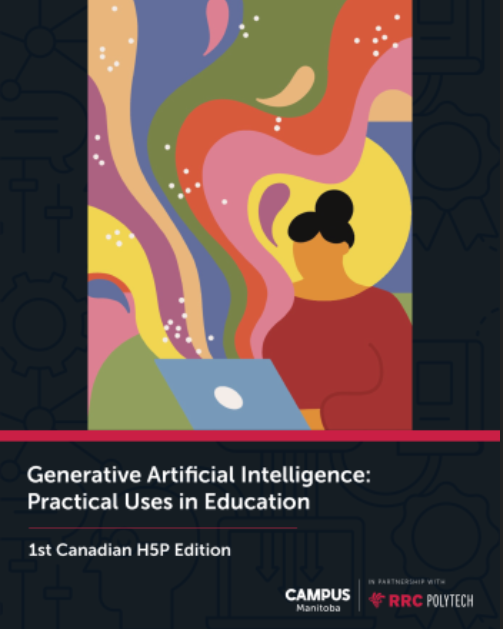Artificial Intelligence Campus MB Interview
Artificial Intelligence (AI) has become a hot topic in education, sparking debates about its impact on both teaching and learning. While many discussions focus on the risks associated with AI, especially in terms of academic integrity, there’s a growing need to explore its potential for enhancing educational practices. Troy Heaps, a communication instructor at Red River College Polytechnic, recently developed an open-education resource that aims to do just that. His resource, Generative Artificial Intelligence: Practical Uses in Education, offers practical insights into how AI can be used productively in academia.

In a recent interview with Campus Manitoba, Troy shared his journey in creating this resource, his insights on AI, and how educators can effectively integrate AI into their work.
AI: A Tool for Enhancing, Not Replacing, Educators
One of the key takeaways from Troy’s perspective is that AI is a tool that can enhance teaching but should not be viewed as a replacement for the human elements of education. He points out that AI can assist with tasks like generating lesson plans, offering activity suggestions, and helping with rubric creation. However, it’s crucial to always maintain a human touch in these processes.
Troy shared that AI helps him “get out of a rut” by offering fresh perspectives on lesson planning and activity creation. He emphasizes that while AI may not always get things exactly right, it’s a fantastic starting point for ideas and structure.
Why an Open Educational Resource?
Over 30 RRC Polytech staff members helped with the production of the Generative Artificial Intelligence: Practical Uses in Education, Open Educational Resource (OER) by sharing ideas in focus groups, reviewing, and helping to create examples. Staff and Faculty contributions added an incredible amount of depth and richness to the resource.
At RRC Polytech, faculty and staff have begun using existing OERs to support their teaching and instruction with students. Savings to RRC Polytech students in course material costs from the use of OER has exceeded $678 000 at the start of the 2024 year. These savings to students are made possible by instructors taking the initiative to use OER as part of their course materials as an alternative to course materials students are required to purchase.
Learn More
If you’re looking to explore the productive uses of AI in your work as an educator, Troy Heaps’ interview offers insights into practical applications and ethical considerations. His open textbook, Generative Artificial Intelligence: Practical Uses in Education, is a valuable resource for educators who want to stay ahead of the curve and integrate AI into their teaching in a responsible, informed way and is available freely online as an OER.

To read the full interview and gain a deeper understanding of how AI can transform your teaching practice, check out the full interview here. You’ll find specific examples, tips, and advice that can help you make the most of AI in your educational environment.
